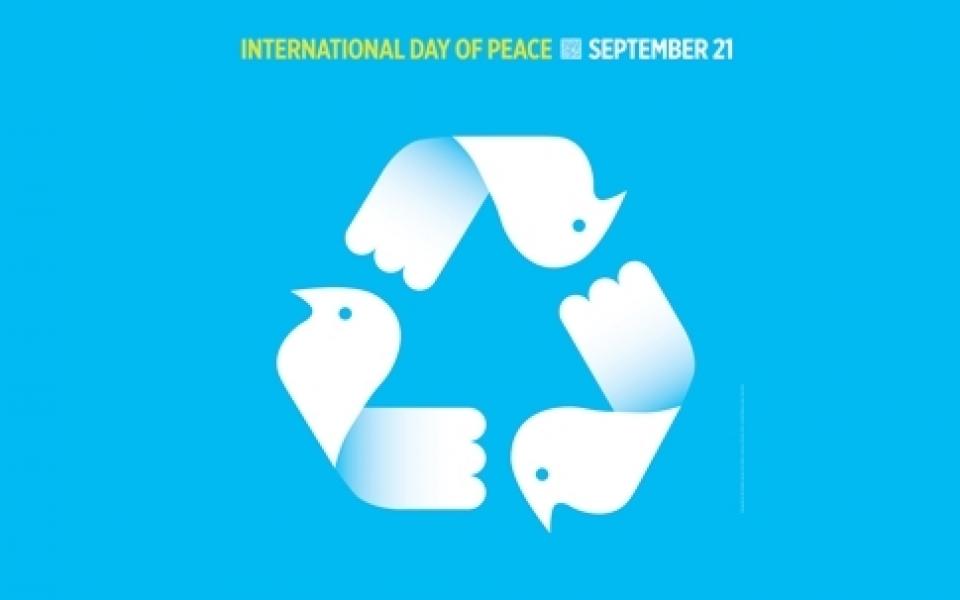
All of us long for peace, particularly at those times – like the ones in which we are currently living – when our world is convulsed by violence, and violent change.
The International Day of Peace, which people throughout the earth celebrate today, is a testament to that desire, a wish and a prayer for a single day when our collective thirst for peace can overwhelm our individual hungers to be first, to be right, to be justified or avenged.
In praying for peace, in committing to be peacebuilders, we are asking for more than merely the absence of violence. Rather than being what is left over when violence is taken away, peace is a thing unto itself, an active response to conflict that provides a means for people with fundamentally different points of view to resolve their differences. Archbishop John Baptist Odama, a trustee of URI’s Global Council who received a World Vision Peacemaking Award this week for his work in helping to end two decades of war in northern Uganda, was not content to condemn the violence taking place in his country. Instead, he made himself the conduit that allowed two opposing armies to talk to one another. He became a peacebuilder.
That kind of peace can be uncomfortable to experience, and difficult to achieve. Wars, after all, allow those who declare them to feel superior in their motives and justified in their actions. Peace requires us to recognize that those persons with whom we vehemently disagree have a right to their beliefs, that those whose actions we find objectionable are nevertheless worthy of our respect. There is a reason why those who come to us as messengers of peace – Mahatma Gandhi, Martin Luther King, Jr., Jesus, Mohammed – are rarely welcomed at first. It is so much easier to imagine peace than to live it.
Yet we continue to dream of peace, and to dedicate ourselves to being instruments of peace, because for those of us who want to believe in a world that is more just, more equitable and more open to all the ways there are of being human, peace is the only real alternative. We believe the future of humanity itself depends on a peaceful response to conflict.
So we choose peace, not because it is comforting or easy – it never is – but because it works. As Martin Luther King, Jr. said in accepting his Nobel Prize for Peace, “Sooner or later, all the people of the world will have to discover a way to live together in peace. If this is to be achieved, man must evolve for all human conflict a method which rejects revenge, aggression and retaliation. The foundation of such a method is love.”
I wish each of you, and our world, a blessed International Day of Peace.
